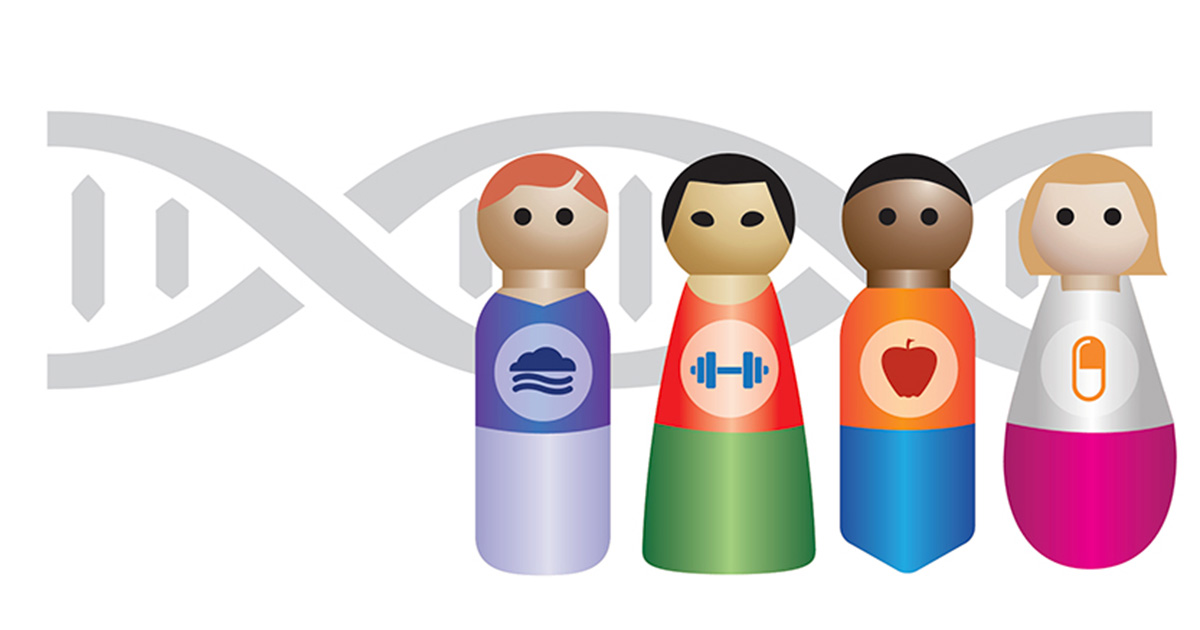
News
March 2025
We are excited to announce that Lawrence S. Kirschner, M.D., Ph.D. will join Alison Motsinger-Reif, Ph.D. as a principal investigator for PEGS. We congratulate Dr. Janet Hall on her retirement and thank her for all of her contributions to PEGS.
September 2024
PEGS DREAM Challenge winners announced.
On September 1, NIEHS announced the winners of the Personalized Environment and Genes Study (PEGS) DREAM Challenge. PEGS integrates genetic and environmental data to understand disease etiology, identify risk factors, and improve disease prevention. The winning teams listed below successfully analyzed data from PEGS to classify individual high cholesterol disease status and design hypotheses that go beyond known risk factors for the disease.
Team Name: Spider Bobs
Members: Ali Salehzadeh-Yazdi, Eda Cakir, Johannes Falk, Venetia Voutsa, Jyoti Jyoti, Marc Hütt, Constructor University Bremen Germany, School of Science, Life Sciences & Chemistry
To identify factors driving high cholesterol, the team built a model with a Gradient Boosting Classification tree method using data from the PEGS surveys. By analyzing genomic and exposome data, the team identified links among high cholesterol, genotypes, and previous infectious disease status.
Team Name: Nonsense-mediated Decay
Members: Federico Marotta, Alessandro Lussana, European Molecular Biology Laboratory, European Bioinformatics Institute, Molecular Systems Biology Unit
To identify gene-environment interactions, the team built a model with a random forest classifier method, using the PEGS survey data and polygenic risk scores. Taking advantage of the multi-dimensional data in PEGS, the team sought to advance the understanding of the heterogenous causes of high cholesterol.
The winning teams presented their work at the RSG/DREAM 2024 conference on October 1 in Madison, Wisconsin and will be invited to participate in manuscript writing.
This news is featured in the Environmental Factor - NIEHS News in Brief.
May 2024
The PEGS DREAM Challenge is live.
NIEHS is calling all scientists to dive into an exciting new DREAM Challenge to tackle high cholesterol using data available from the Personalized Environment and Genes Study (PEGS) cohort. For this challenge, NIEHS has partnered with Sage Bionetworks, the originator of DREAM Challenges hosted on their Synapse platform. DREAM Challenges engage the scientific community in collaborative problem-solving to address fundamental biomedical questions.
PEGS DREAM Challenge participants will compete in two tasks. In the first task, Challenge participants will use PEGS data to classify individual risk of high cholesterol. In the second task, participants will submit creative hypotheses about high cholesterol beyond known clinical risk factors. Winners will present their results at a conference and will be first authors on papers describing the results, and all participants have the opportunity to be included as authors in papers describing the Challenge. The submission deadline is August 15, 2024. Winners will be announced on August 31, 2024.
April 2024
PEGS Town Hall
June 2023
PEGS Data Freeze 3.1 is now available and consists of the following:
- Geospatial data linkage for CDC/ATSDR Environmental Justice Index (EJI)
March 2023
PEGS Virtual Event: Town Hall Forum
PEGS hosted a virtual event on March 28, 2023. Study investigators discussed the name change from EPR to PEGS, the history of the study, provided updates and answered questions.
December 2022
PEGS Data Freeze 3 is now available and consists of the following:
- Geospatial data linkages from the Modern Era Retrospective analysis for Research and Applications (MERRA-2) project and the CDC/ATSDR Social Vulnerability Index (SVI)
- The WHO’s Anatomical Therapeutic Chemical (ATC) classification system codes for medication data
- Incorporation of survey responses from the new demographics form and consolidation of legacy and new variables for sex
- Quality control of Diabetes Screener Survey, Eczema Screener Survey, Right-not-to-know Cognitive Interview Survey and Right-not-to-know Main Survey to nullify invalid values
November 2021
PEGS Data Freeze 2 is now available and consists of the following:
- Quality control of Health & Exposure Survey, Exposome A Survey, Exposome B Survey and Demographic and Administrative data to nullify invalid values
- Additional geocoded participant addresses
- GIS-based exposure estimates computed from various GIS exposure databases
September 2021
The Environmental Polymorphisms Registry (EPR) has been renamed the Personalized Environment and Genes Study (PEGS) to reflect the expanded scope of the study in terms of data, research and analyses.
PEGS has registered 19,402 North Carolina residents and includes rapidly expanding sets of high-dimensional data that comprise:
- Responses to a Health and Exposure Survey, Internal Exposome Survey and External Exposome Survey.
- Whole genome sequencing data.
- Geographic Information Systems (GIS) data.
The large-scale and multi-dimensional data collected from the PEGS allow researchers to dissect the etiology of diseases and identify the collective effects of environment, diet, lifestyle, and genetic factors on human health.
Newsletters
PEGS newsletters provide participants, scientific collaborators and others with an overview of the latest study activities and findings. They can be accessed from the PEGS enrollment website.



